- Home
- Ward Wagher
ruBracks, Nazis, the Death of the Universe & Everything (The Parallel-Multiverse Book 1)
ruBracks, Nazis, the Death of the Universe & Everything (The Parallel-Multiverse Book 1) Read online
ruBracks,
Nazis,
the Death of the
Universe
& Everything
Ward Wagher
ruBracks,
Nazis,
the Death of the
Universe
& Everything
Ward Wagher
This is a work of fiction. All the characters and events portrayed in this book are fictional, and any resemblance to real people or incidents is purely coincidental.
Copyright © 2018 Ward Wagher
All rights reserved.
ISBN: 198576430X
ISBN-13: 978-1985764309
Books by Ward Wagher
The Parallel Nazi Series
Accidental Nazi
Improbable Nazi
The Parallel-Multiverse Series
ruBracks, Nazis, the Death of the Universe & Everything
The Scott Baughman Saga
Hannah Sorpat’s Eye (A Novel of Alien Abduction)
Without Beginning of Days
Witnesses in the Cloud
The Chronicles of Montora
The Mountains of Montora
The Margrave of Montora
The Snows of Montora
Christmas in Montora
The Diamonds of Montora
Harcourt’s World
The Wealth of the Worlds
The Caledon Emergence
Dynastic Ambition
DEDICATION
To my readers: those longsuffering, patent souls who wait breathlessly for the next book, and are hopefully not disappointed.
CONTENTS
Acknowledgments
Author's Forward
PART 1
Prologue
Chapter One
Chapter Two
Chapter Three
Chapter Four
Chapter Five
Chapter Six
Chapter Seven
Chapter Eight
Chapter Nine
Chapter Ten
Chapter Eleven
Interlude 1
PART 2
Interlude 2
Chapter Twelve
Chapter Thirteen
Chapter Fourteen
Chapter Fifteen
Chapter Sixteen
Interlude 3
Chapter Seventeen
Interlude 4
Chapter EIghteen
Chapter Nineteen
Chapter Twenty
Chapter Twenty-One
Interlude 5
Chapter Twenty-Two
Chapter Twenty-Three
Chapter Twenty-Four
Chapter Twenty-Five
Chapter Twenty-Six
Chapter Twenty-Seven
Chapter Twenty-Eight
Chapter Twenty-Nine
Chapter Thirty
Chapter Thirty-One
Chapter Thirty-Two
Chapter Thirty-Three
Postlude
About the Author
ACKNOWLEDGMENTS
Thanks to Beejay Morgan who kindly arranged for the phrases to be translated into German.
AUTHOR’S FORWARD
One of the challenges of creating a future history is keeping that history straight. Early in the process I created a source document in which I kept details of the history, and also created a time-line. So far, so good. However, in the past couple of years I hopelessly complicated things by writing stories related to parallel universes. The first was a short story, “Bach’s Lunch,” which described the initial experiment gone awry. This led to the “Parallel Nazi” series, which has become my best-selling collection of books. Because several characters cross over between the series, I decided to attempt a novel that provides the background story, as well as harmonizes everything. That may have been a mistake.
Any time-travel or parallel universe story introduces inconsistencies and contradictions. The easiest way around that is to simply say, “Oh, it’s a parallel universe. Things are slightly different there.” That is convenient, but it often annoys the reader. The goal of any speculative fiction is to avoid things that shake the reader’s willing suspension of disbelief. That was much more difficult in this novel, but I hope I succeeded.
Those readers coming from the Parallel Nazi series will find this book to be more overtly Christian in its content. I make no apologies for that, but I also work hard not to use the story simply as a platform for preaching. It is not the focus of the story, but it is a part of the story.
For those who have read my future history series, you will see several familiar characters here. It is a back-story that ties up a lot of loose ends in several series. I have two more back-story novels planned. These are stories that want to be told.
And, this story does answer the question: Who is Frau Marsden?
PART 1
PROLOGUE
Edgar Forsenn felt the effects of going two nights without sleep. The excitement of the project had fed the adrenalin into his system, and now that was losing its effectiveness. But, he did not want to wait another day. He had checked and rechecked his calculations. The test apparatus was assembled. He ran the checklist through his mind. Yes, he had thought of everything. There was no reason for him not to run the experiment.
Forsenn was one of the three scientists in the Urbana Quantum Physics Laboratory with the title Distinguished Scientist. This was an honor the paladin bestowed upon those scientists with a record of singular accomplishments. The paladin, who was the head of government for the Upper Midwest Palatinate in North America was the primary benefactor of the lab, as were the previous paladins.
Nearly three hundred years previously, the first paladin had established the laboratory, and in subsequent centuries it had paid off its investment with a string of major discoveries. The first Distinguished Scientist was Lawrence Berthold, who had developed working gravity fields, which revolutionized space travel. Then, he had gone on to develop the mathematics behind the Berthold Singularity, and had then refined it into a technology that made possible practical interstellar travel.
Forsenn hoped he would eventually be mentioned in the same breath as Westerley, Clenèt, Berthold, and Spence. His current experiments in that area were part of these efforts. True, the director of the laboratory had established the policy that forbade major experiments from running without a full crew on hand to observe. His coworkers had strenuously impressed upon him the need for them to check his preparations. To be honest some previous spectacular failures on his part had driven their insistence on being present for any major evolutions.
But this was the fulfillment of a lifetime’s work. The invention of quantum tunneling technology had revolutionized space travel. The same basic theories had also made possible the refinement of thermonuclear power generation as well as power transmission. Even the cybernetics technology depended upon the outgrowth of research into quantum physics.
From the dawn of the Quantum Age, physicists had wrestled with the mathematics surrounding the forces they brought under control. Westerley and Clenèt had developed the math and had invented the nuclear fusion which powered the current civilization. The great Berthold had taken the science further and his work had resulted in the Quantum Tunneling Drive that made interstellar travel possible.
One problem that repeatedly refused to be laid to rest was that the mathematical equations developed by the three greats each exhibited minor faults. The energy output was off by fractions of a percent, or the forces released by the gravitational
fields behaved slightly differently than predicted. In fact, Berthold’s discoveries were the result of his digging into the problems with Clenèt’s equations.
During the course of his research into Berthold’s equations, Forsenn had discovered certain side effects of the quantum tunneling that he concluded were tachyons thrown off during the process. His calculations indicated the possibility of time-shifting phenomena which he was sure would ultimately present an opportunity to open a window and peer into the future or the past. Not only would this fulfill his lifetime quest, but would also secure his reputation as one of the foremost scientists of the age – and once and for all lay to rest his reputation as an impulsive bumbler.
He rubbed the grit deeper into this eyes and stared owlishly at the three-dimensional chrono display blinking on the corner of workspace. His colleagues knew he was getting close to running the experiment, and had warned him to wait until they arrived in the morning. He knew they would arrive early, but he really did not want to wait. He mentally rehearsed his responses to the inevitable confrontation that would occur when it became clear he was too impatient to wait.
He mentally pondered the experiment one more time, then shrugged. Either it would work, or it wouldn’t. The test equipment was constructed. The diagnostics indicated it was correct, or, at least according to design. He reached into the three-dimensional display his comp term projected onto his work area and twisted an icon. For a moment nothing happened as the comp term sent commands in a hundred directions through the lab. Then he heard the Spence cold fusion generators spin up. Invented two-hundred years previously, cold fusion was not widely used due to the prevalence of power delivered from grav powered fusion stations. But the paladin had insisted the lab have an independent power supply for its experiments.
The fail-safe Forsenn had engineered into the experiment now blinked at him. Did he want to continue? The little round icon blinked blue and green in the middle of his workspace. He considered things one more time, the extended his hand and drove it flat. The keening generators rose in volume and pitch as the components of the apparatus awakened in sequential order. The comp term activated the data collection modules and terabytes of telemetry flowed from the scientific equipment.
The system he had constructed reached its climax and he held his breath as the mechanism tipped over into a cascade of quantum micro-events. It seemed to Forsenn that the unwinking lights which illuminated the lab may have flickered briefly, but it also might have been the grit in his eyes. There were no other perceptible results of the experiment other than the numbers streaming across the projection on his desk; nor did he expect any.
Another timer kicked over in the comp term, and the experiment gracefully shut itself down. A brief examination of the logs indicated that everything performed nominally. From that standpoint, the experiment was a success. He knew that it would take months of hard work to tease the results from the volumes of test data he had collected. His place in history was now assured, he thought.
CHAPTER ONE
It was a pleasant summer morning in Leipzig, and the cantor left home early. He had a cantata to perform on Sunday as usual, and he was late in copying the scores for the musicians and singers. After a pleasant breakfast with his wife, and a time in the Scriptures, he walked the short distance to the St. Thomas’ Church. The dew was heavy this morning and he stepped carefully – the cobblestones could be slippery, and his joints ached. As he walked, he whistled the tune of a new fugue he was thinking about. The music in his head helped him not to dwell on his aches and pains.
He did his best thinking of the day as he walked to and from the church where he worked. He pondered whether to approach the town council about hiring a few more musicians. The balance between the reeds and the strings was a little off, and several of his violin students showed real promise. On the other hand, the town council could get remarkably crabby about spending more money. They had been generous with his stipend but begrudged additional expenses. Nobody got wealthy in the music business, but he was better off than most.
As he strode along the streets his thoughts turned to his children. Friedrich was a loyal son and worked hard at his lessons. He was aware of his responsibilities as the eldest and took them seriously. As a musician, Friedrich was merely adequate. He had no complaints about his son. The boy was making the best of the gifts God had given. Now, Carl showed that spark of creativity rare in children. Though young, Carl was already creating small compositions on the harpsichord. And the music hung together well. All in all, he was pleased with his sons and daughters.
His mind turned back to music, again. The cantor completed the short melody and contemplated the overall pattern of the piece. He had just begun humming the tune again as he made his way over the slippery cobbles, and in spite of his care, he felt his feet slip out from under him. He reached behind himself to try to break the fall, and during that moment things changed. He landed solidly on his behind, but the bright morning had turned to darkest night in an eye-blink. It was raining now, and cold. He was sprawled, not on cobblestones, but some kind of hard, abrasive surface like stone.
He looked around wildly, his breath rasping through his clenched teeth. The darkness was penetrating. He held up his hand to his face and saw a slight shadow. Thank God he wasn’t blind. Looking through the steady rain in the other direction, he could see woods in the distance with some kind of lighting behind the trees. Too regular to be a fire, he wondered if he was seeing a second sunrise. Where was he, and what had just happened? Had he hit his head in the fall?
If he was injured and unable to work, his family would be in the poor house. That frightened him more than anything. Destitution was a real danger when families in Leipzig lost their income. His wife and children would all have to accept whatever work was available. Any opportunities for his sons to attend a gymnasium or conservatory would be gone. Fear for his family warred with his personal panic. Where was he, and how did he get here? Nothing looked familiar.
In the distance there came a hissing sound, and he turned his head to look in that direction. There was a slight hill, and he saw an increasing light behind it. He was a sensible, civilized German, and didn’t believe in dragons, but with a louder hiss, two brilliant eyes swept over the top of the hill and drew closer. He clambered to his feet but remained frozen in place as his pulse pounded in his ears.
The creature grew closer, and the hiss turned to a growl. Okay, so maybe it wasn’t a dragon, but he didn’t know what it was, and he was terrified. He spun around to run and slipped again. Lying on the ground, he spun around to face whatever it was that was getting ready to fall upon him, and... it wasn’t a beast. It was a carriage of some sort. But where were the draft animals?
The carriage turned sideways and skidded to a stop. Two people stepped from the carriage and trotted over to him.
“What are you doing here? Are you all right, Sir?”
„Wo bin ich?“ (Where am I?)
“What did he say?”
„Wer sind Sie?“ (Who are you?)
“I do not understand.” The speaker turned to the other. “Do you recognize the language?”
The other speaker was a woman – the voice was a melodic soprano. A singer’s voice.
“Are you hurt, Sir?” the woman asked.
„Ich verstehe wirklich nicht was Sie sagen.“ (I really do not understand what you are saying.)
The woman turned to the man. “Edgar has gone and done it, Quint.”
“What?”
“Look at this man,” she said. “Look at the odd clothes. And he’s definitely not dressed for the weather. Ed has activated the quantum tunneling machine.”
The man stood with his hands on his hips and looked around him. “I am going to kill him.”
“That will have to wait, Quint. We need to help this poor man. When the time comes, I will help you kill Ed Forsenn.”
They each grabbed the German by the arm and helped him to his feet. “Come on, Sir, we ne
ed to get you warmed up.”
„Ich kann Sie nicht verstehen.“ (I cannot understand.)
“I wish I knew what he was saying,” the woman said.
“We should take him up to the lab, Sally. That is about the closest place. We can talk to Ed, then.”
He compliantly allowed the couple to help him into the carriage. It was most unusual. The sides were highly lacquered, and the carriage lamps were bright. They didn’t flicker. No, this was not a dragon. It was clearly an artifice of some kind.
With a click, the woman pulled the door open.
“Sit in the back with him, Quint. I’ll drive.”
It sounded like English to him, but not quite like how the Englanders spoke. He had a good ear for languages. In addition to his Deutsch, he knew Latin well and had a slight acquaintance with French, English, and Italian. His head was spinning, though. Everything was different. What had happened?
The seat in the carriage was fabric. It was obviously a very sturdy fabric, but there was no decoration in the weave. A lamp was above him and shown down. It did not flicker either. The door clicked shut, and the man trotted around to the other door and climbed in. Ahead of him, the woman climbed into the carriage, and the lamp above him stopped shining. This was odd. The seats did not face each other. The woman busied herself with something he could not identify, and the carriage began moving.

 The Mountains of Montora (The Chronicles of Montora Book 1)
The Mountains of Montora (The Chronicles of Montora Book 1)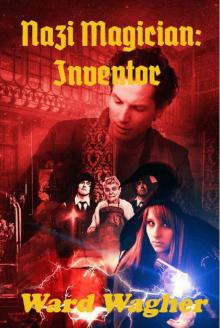 Nazi Magician: Inventor
Nazi Magician: Inventor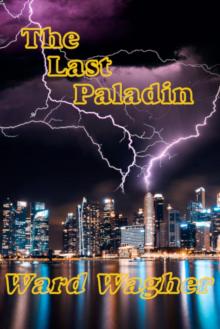 The Last Paladin
The Last Paladin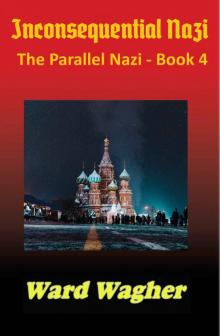 Inconsequential Nazi
Inconsequential Nazi Impossible Nazi
Impossible Nazi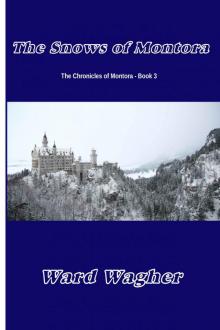 The Snows of Montora (The Chronicles of Montora Book 3)
The Snows of Montora (The Chronicles of Montora Book 3)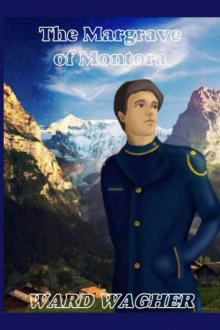 The Margrave of Montora (The Chronicles of Montora Book 2)
The Margrave of Montora (The Chronicles of Montora Book 2)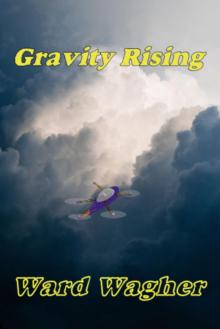 Gravity Rising (The Parallel Multiverse Book 2)
Gravity Rising (The Parallel Multiverse Book 2)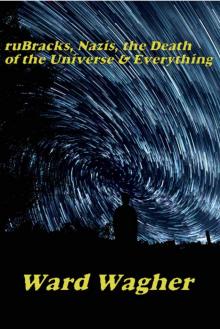 ruBracks, Nazis, the Death of the Universe & Everything (The Parallel-Multiverse Book 1)
ruBracks, Nazis, the Death of the Universe & Everything (The Parallel-Multiverse Book 1) Improbable Nazi (Parallel Nazi Book 2)
Improbable Nazi (Parallel Nazi Book 2) Accidental Nazi
Accidental Nazi Improbable Nazi
Improbable Nazi